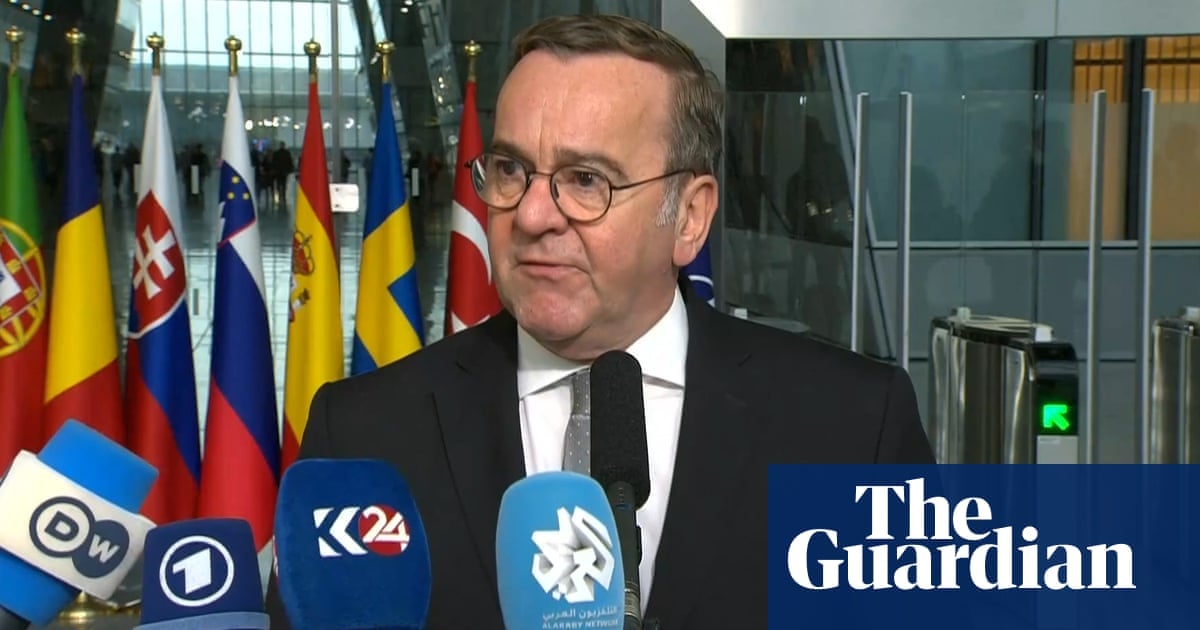Summary
Germany’s defense minister, Boris Pistorius, criticized the U.S. for making concessions to Russia before peace talks, particularly ruling out NATO membership for Ukraine and accepting territorial losses.
His concerns were echoed by France’s defense minister, Sébastien Lecornu.
Trump’s recent call with Putin sparked European opposition, with key nations reaffirming their support for Ukraine’s sovereignty.
The Kremlin welcomed Trump’s stance, while Ukraine maintained its NATO aspirations.



But how will we have a Cold War when our president has his tongue up Putin’s ass?
It’s basically a tripolar world of three main authoritarian empires (US, China, Russia) who have transactional relationships, almost à la 1984.
Explanation of Geopolitics in 1984
Each state is self-supporting so they do not war over natural resources, nor is the destruction of the opponent the primary objective; for, even when two states ally against the third, no combination is powerful enough to do so.[23][24]Each state recognises that science is responsible for its over-production,[25] so science must be carefully controlled lest the proles or Outer Party expect an increased standard of living.[26] From this analysis stems the policy of permanent warfare: by focusing production on arms and materiel (rather than consumer goods) each state can keep its population impoverished and willing to sacrifice personal liberties for the greater good.[7] The peoples of these states—subject to shortages, queues, poor infrastructure and food—“are no longer domesticated or even able to be domesticated”, says Carr.[27][28]
These states all are similar monolithic regimes.[8]Historian Mark Connelly notes that “the beliefs may differ, but their purpose is the same, to justify and maintain the unquestioned leadership of a totalitarian elite”.[7] Due to the sheer size of the protagonists, there are, says Connelly, no “massive invasions claiming hundreds of thousands of lives”,[23] but instead small-scale, local encounters and conflicts which are then exaggerated for the purposes of domestic propaganda.[8] Connelly describes the fighting between the states as “highly technical, involving small units of highly trained individuals waging battles in remote contested regions”.[23] All sides once possessed nuclear weapons, but, following a short-lived resort to them in the 1950s (in which Colchester was hit)[29] they were recognised as too dangerous for any of them to use. As a result, says Connelly, although London could have been destroyed by a nuclear weapon in 1984, it was never hit by anything worse—albeit “20 or 30 times a week”—than “rocketbombs”, themselves no more powerful than the V-1s or V-2s of World War Two.[23]
At any moment, however, an alliance could shift and the two states that had previously been at war with each other may suddenly ally against the other. When this happened, the past immediately had to be re-written—newspapers retyped, new photos glued over old—to provide continuity. In many cases that which contradicted the state was simply destroyed.[30] This occurs during Oceania’s Hate Week, when it is announced that the state is at war with Eastasia and allied to Eurasia, despite the assembled crowd—including Winston and Julia—having just witnessed the executions of Eurasian prisoners of war. Winston describes how, when the announcer spoke, “nothing altered in his voice or manner or in the content of what he was saying, but suddenly the names were different”.[31] Orwell describes the war as one of “limited aims between combatants who are unable to destroy one another, have no material cause for fighting and are not divided by any genuine ideological difference”.[21] These wars, suggests the writer Roberta Kalechofsky, “stimulate the news or ‘the truth’”.[32]
https://en.m.wikipedia.org/wiki/Political_geography_of_Nineteen_Eighty-Four
I don’t consider Presidents anymore. What do us people think about Russia and viceversa?